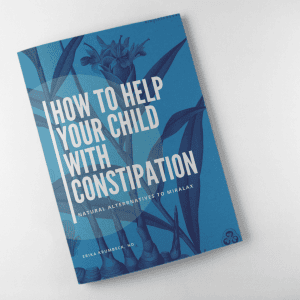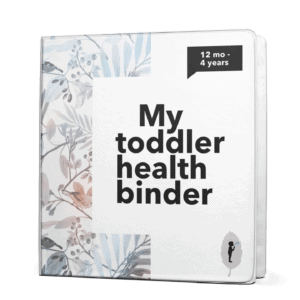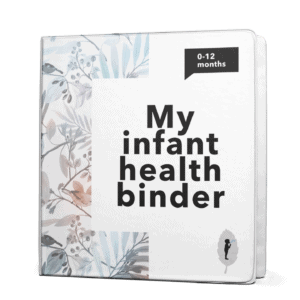Foods to Eat When You or Your Child are Sick
As you may have heard, food is our best medicine. When you or your child are ill you definitely want to get the best food
possible, but what are these mysterious healthy foods to eat while you’re sick?
Go for foods that are easy to eat but pack a good nutritional punch.
It is important to stay hydrated while ill, so make sure the patient gets plenty of liquids such as: water, coconut water, broths, soups, watered down organic juices (I suggest half water/half juice). If you are having a hard time getting liquids into your child I suggest having them use a straw or giving liquids on a spoon.

If your child is vomiting regularly then do oral rehydration with breast milk for young children or with Pedialyte
To do oral rehydration: give the child 1 or 2 teaspoons of liquid every 15 minutes to help them keep it down. Children’s stomachs can start a reflexive vomiting cycle that will lead them to vomiting any larger amounts of foods or liquids; the oral rehydration technique is helpful to coax them out of this cycle. Once they are able to hold down liquids in this manner you can slowly return to more regular intake. (see recipe for a natural Pedialyte-type drink here).
When someone has a sore throat eating regular foods might be too rough, so I encourage smoothies, teas, broths and soups.
Healing Smoothies:
I like homemade smoothies (easy to drink through a straw) for the ability to get good amounts of veggies and fruit in with some added nutrients.
Ingredients of healthy smoothies include:
frozen organic berries (strawberries, blueberries, raspberries, blackberries, cranberries)
Fresh or frozen:
- pineapple
- peach
- apple
- melon
- cherries
- mango
- avocado
*I don’t suggest banana or citrus fruits as these foods can cause mucus production and often when we’re ill we’ve already got more than enough mucous
Don’t forget the vegetables!
- fresh spinach leaves
- carrot
- cucumber
- parsley
- celery
- baby kale leaves
- lettuce
- watercress
- ginger (very small amount)
Extra nutrient-boosting additions:
- Flaxseeds
- Chia seeds
- Coconut water
- Unsweetened cocoa powder
- Dairy-free yogurt (I don’t recommend dairy when ill as it is mucus forming)
- Kombucha
- Probiotic pill opened up and sprinkled in
- Cod liver oil or Fish oil (no more than 2 teaspoons per person)
For the liquid to thin out the smoothie:
- Water
- Oat milk
- Flax milk
- Hemp milk
- Unsweetened organic rice milk
*I don’t recommend dairy when ill as it is mucus forming.
If your child has a hard time drinking through a straw you can also spoon the smoothie into their mouths.
Warm or cool teas can help heal and soothe at the same time.
Some of my favorite teas for illness include: mint, chamomile, catnip, lemon balm, hibiscus, ginger, licorice, fennel, anise, and Echinacea. I really like Traditional Medicinals Throat Coat Tea (no affiliation) as it has a good blend of soothing and healing herbs and is generally easy to find at the natural foods store. You can make these teas into popsicles for people having a hard time swallowing or have sores in their mouths. You can also freeze the teas into ice cube form and then make ice chips for the patient to suck on.
Soups are another great place to get in lots of nutritious vegetables:
Meat or bone broths from pastured animal bones. Often you will need to have made the broth ahead of time and frozen it for use, as pastured bone broth is difficult to find in most grocery stores. For vegetarians a good organic vegetable broth is an alternative to bone or meat broth.
Good soup vegetables include:
- Tomato
- Beets
- Asparagus
- Artichoke
- Pumpkin
- Squash (various varieties will work)
- Sweet potato
- Leafy greens (collards, mustard greens, kale, spinach, etc)
- Carrots
- Celery
- Onions
- Garlic
- Leeks
- Scallions
- Green beans
- Peas
- Potato
- Mushrooms (shitake, reishi and maitake are the most nutritious, but any cooked mushroom is good)
Good herbs to add to the soup (fresh or dried: make sure the dried herbs still have good color and a strong smell)
- Basil
- Rosemary
- Cayenne or other pepper
- Thyme
- Sage
- Parsley
- Cilantro
- Ginger
For the soup base:
- Bone or meat broth (see above)
- Vegetable broth
- Crushed tomatoes
- Full-fat canned coconut milk (in BPA free can)
Additions:
- Rice
- Noodles
- Buckwheat
- Beans
Some of my favorite soup recipes when folks are ill include:
Vegan beta-carotene coconut spiced soup:
Ingredients:
- 2 cups chopped sweet potato or carrot or another vegetable high in beta carotene (or do a mix of these vegetables)
- 1 chopped onion
- 6 cloves minced garlic
- 1 inch chopped ginger (fresh)
- 1 cup canned full fat coconut milk
- 2 cups water
- 2 teaspoons turmeric or curry powder
- 1 handful fresh greens such as cilantro
Salt to taste
Instructions: prepare your vegetables and set aside. In the bottom of your soup pot: cook turmeric or curry powder in 1 tablespoon olive oil for a few minutes, add vegetables and liquids: simmer on medium until all vegetables are cooked through (about 1 hour) and then add cilantro and salt to taste.
Dr. Mitchell’s Immune Support Soup:
this recipe is based on one from Dr Bill Mitchell, a founder of Bastyr University.
Ingredients:
- 1 quart homemade chicken broth or miso broth
- (if you don’t have homemade on hand the next best thing would be pastured chicken broth from the store)
- 1 small red onion
- (pungent, eye wateringly strong red onions are most nutritious)
- 4 to 6 cloves of minced or pressed raw garlic
- 1 carrot chopped or grated
- (purple carrots are the very most nutritious carrots, but orange carrots are also very nutritious. If you bake or steam the carrots whole you will get the most nutrition and delicious flavor out of them)
- 4 sliced Shitake mushrooms
- (Shitake mushrooms are phenomenal at boosting the immune system)
- 1 tablespoon fresh grated ginger
- Juice of 1 fresh lemon
- 3 tablespoons fresh parsley, chopped
- Sea salt to taste
Instructions: bring the broth, onion, garlic, ginger, carrot to a simmer and cook for 8 minutes with the lid on then add the Shitake mushrooms and cook for another 7 minutes with the lid on. Add the lemon juice and parsley to the soup, let sit for another 5 minutes off the stove with the lid on.
Congee:
Rice porridge good for upset tummies and low appetite:
Ingredients:
- 5 cups broth of your choice
- ¾ of a cup of organic short grain white rice
- salt and pepper to taste
- Can add in cooked chicken or whitefish at the end if desired.
- Can also add in: green onion, cilantro, grated fresh ginger.
Instructions: place rice and broth in a large soup pot and simmer on low heat with a lid on for about 2 to 3 hours. Add more broth or water if needed. The rice should break down until you have a porridge like texture. Add salt, pepper and additional ingredients to taste.
Fast/already prepared items you can get at the store:
-Pre-made soups: If you need to buy a pre-made soup at the store I suggest organic soups without dairy that are low in sodium. If you can find soups that are sold in BPA free packaging that would be ideal.
- Fruit (see list of fruit in smoothie list above)
- Applesauce
- Non-dairy yogurt if issues with mucus production, otherwise organic dairy yogurt is ok
- Crackers
- Kombucha
- Raw fermented foods
- Organic low sugar bread for toast
- Organic fruit juice (water it down: half water/half juice)
- Precooked beans or chicken/turkey
- Vegetables (see vegetables listed above in smoothie/soup lists)
Foods to avoid when ill:
Avoid highly processed foods and alcohol. If the illness is leading to excess mucus production avoid mucus producing foods such as: citrus, bananas, peanuts, white flour, sugar, eggs and fats.
*Please note, this information is not intended to diagnose or treat. As always, if you or your child are ill please talk with your family doctor about the best course of treatment.
- Product on sale
 How to Help Your Child with Constipation – Natural Alternatives to Miralax (E-book)Original price was: $25.00.$15.00Current price is: $15.00.
How to Help Your Child with Constipation – Natural Alternatives to Miralax (E-book)Original price was: $25.00.$15.00Current price is: $15.00. - Product on sale
 Healing your child from ADHD (E-Book)Original price was: $25.00.$15.00Current price is: $15.00.
Healing your child from ADHD (E-Book)Original price was: $25.00.$15.00Current price is: $15.00. -
 My Toddler Health Binder (Printable E-book)$18.00
My Toddler Health Binder (Printable E-book)$18.00 -
 My Infant Health Binder (Printable E-book)$18.00
My Infant Health Binder (Printable E-book)$18.00

Gina
November 20, 2017 at 3:03 amBreastfeeding has always been a lifesaver for my little ones. It seemed sometimes that is all they wanted and I didn’t worry so much about them becoming dehydrated. Now that they are older it is chicken broth and peppermint tea. Great post!
Kate
July 12, 2017 at 9:37 pmThank you for this insightful article. I am looking for information to help my 6 month old baby who is getting over a cold. She has a cough which I have noticed is exacerbated after I breastfeed as it causes her to become mucousy and vomit. I follow an almost paleo diet (except for rice and corn) and we didn’t have any issues feeding prior to her becoming sick so I don’t think it is something in my milk , I believe it is just the thickness of the milk adding to her congestion. Do you have any recommendations to help us overcome this cycle of feed, congestion, cough = vomit. I should add it’s not ever feed and is definitely worse at night time.